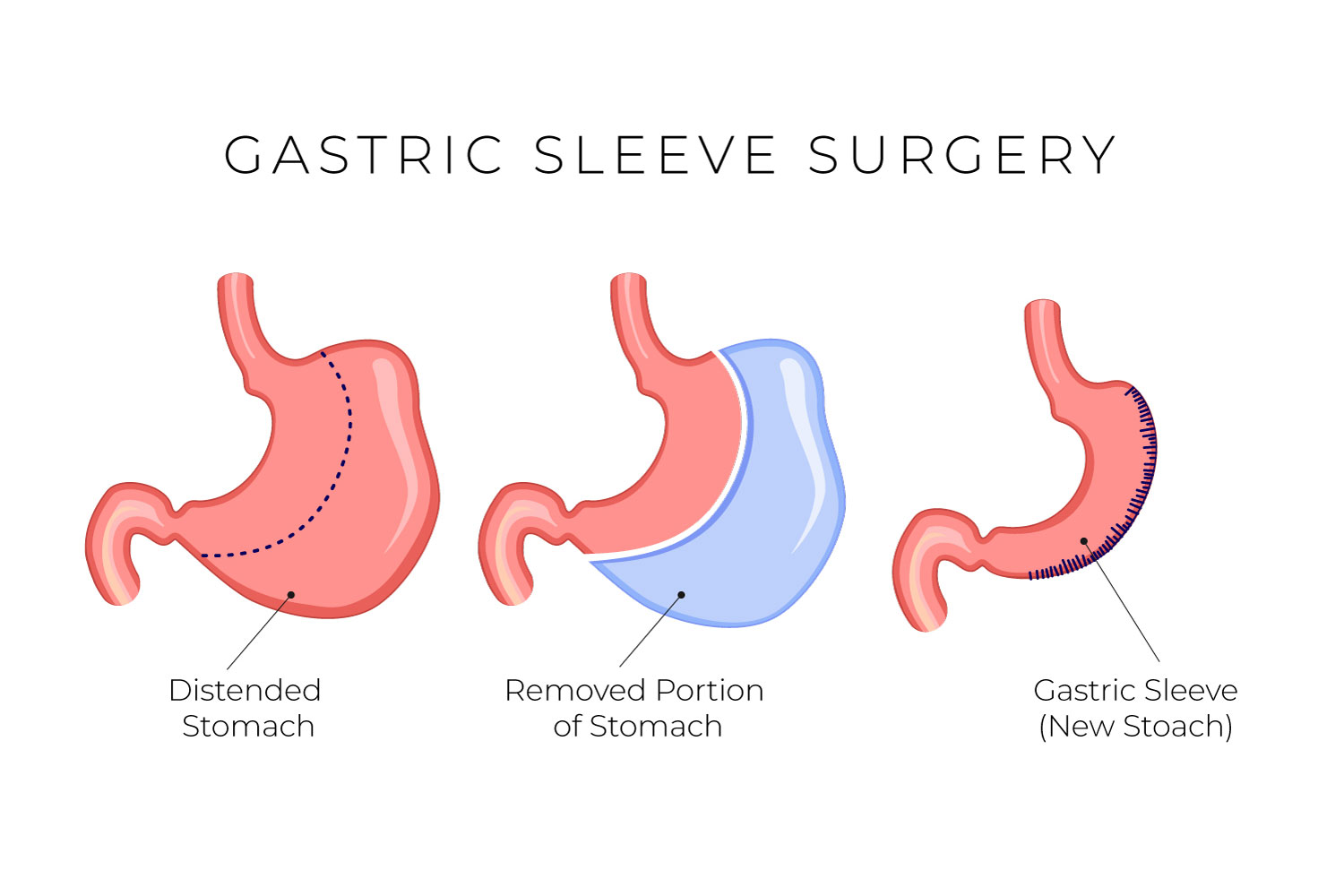Gastric Sleeve Surgery: A Comprehensive Guide to a New Beginning

In the realm of bariatric surgery, gastric sleeve surgery, also known as sleeve gastrectomy, stands out as a popular and effective option for those battling severe obesity. This procedure not only aids in significant weight loss but also paves the way for a healthier lifestyle. Let’s dive into the details of gastric sleeve surgery, exploring its procedure, benefits, potential risks, and what candidates can expect from this transformative journey.
What is Gastric Sleeve Surgery?
Gastric sleeve surgery involves the removal of approximately 80% of the stomach, leaving a tube-shaped “sleeve” that connects the esophagus to the small intestines. This significant reduction in stomach size restricts food intake and decreases hunger hormone levels, leading to weight loss.
Ideal Candidates for Gastric Sleeve
Candidates for this surgery typically have a Body Mass Index (BMI) of 40 or higher or a BMI of 35 or higher with obesity-related health conditions such as type 2 diabetes, high blood pressure, or sleep apnea. It’s crucial for candidates to be committed to lifelong dietary changes and regular physical activity post-surgery.
Benefits of Gastric Sleeve Surgery
- Significant Weight Loss: Patients can expect to lose 60% to 70% of their excess body weight within two years of surgery.
- Improved Health Conditions: Conditions like type 2 diabetes, hypertension, and obstructive sleep apnea often improve or resolve entirely.
- Enhanced Quality of Life: Many patients report increased mobility, self-esteem, and overall life satisfaction following surgery.
Potential Risks and Complications
As with any surgical procedure, gastric sleeve surgery carries risks, including:
- Surgical complications such as leaks from the stomach line and infections.
- Nutritional deficiencies due to the reduced stomach size and altered food intake.
- Potential for weight regain if lifestyle modifications are not maintained.
The Procedure Explained
Gastric sleeve surgery is typically performed laparoscopically, involving several small incisions through which instruments and a camera are inserted. This minimally invasive approach generally results in shorter hospital stays, less pain, and quicker recovery times compared to open surgery.
Recovery and Aftercare
Recovery involves a phased diet, starting with liquids and gradually progressing to solid foods over several weeks. Patients are encouraged to engage in light physical activity soon after surgery and gradually increase intensity as recommended by their healthcare team. Regular follow-up appointments are essential to monitor progress and address any concerns.
Preparing for Surgery
Preparation includes comprehensive evaluations by a multidisciplinary team, dietary counseling, and possibly undergoing a pre-operative diet to reduce liver size and surgical risk. Patients should also plan for the recovery period, ensuring they have support for household tasks and transportation.
Get a Medical Opinion
Fill out the form and we will contact you shortly.
Frequently Asked Questions About Gastric Sleeve Surgery
Patients typically lose 60% to 70% of their excess body weight within the first two years after undergoing gastric sleeve surgery. Individual results can vary based on adherence to dietary and lifestyle changes.
Unlike adjustable gastric banding, gastric sleeve surgery is not reversible. The procedure involves removing a portion of the stomach, which cannot be restored later.
After surgery, you’ll need to adhere to a specific diet that begins with liquids and gradually progresses to pureed, soft, and then solid foods over several weeks. Long-term dietary changes include eating smaller portions, focusing on high-protein foods, and avoiding high-sugar and high-fat foods to maintain weight loss and nutritional health.
Recovery varies by individual, but most patients can expect to return to work and normal activities within 2 to 4 weeks post-surgery. Full recovery and adaptation to the new stomach size and dietary habits may take several months.
Yes, due to the reduced capacity to consume and absorb certain nutrients, most patients will need to take vitamins and mineral supplements for life after gastric sleeve surgery. Your healthcare provider will recommend a specific regimen based on your needs.
Gastric sleeve surgery can lead to significant improvement or even resolution of obesity-related comorbid conditions such as type 2 diabetes, hypertension, and obstructive sleep apnea, among others. The extent of improvement varies depending on several factors, including the severity of the condition and adherence to lifestyle changes post-surgery.
Yes, Turkey is a popular destination for medical tourism, including gastric sleeve surgery, due to its high-quality healthcare services, experienced surgeons, and cost-effectiveness. International patients are advised to research accredited facilities and surgeons and consider logistical aspects such as travel, accommodation, and language support.
RELATED POSTS
Conclusion
Gastric sleeve surgery offers a powerful tool in the fight against obesity, providing a path to significant weight loss and improved health. However, it requires a strong commitment to lifestyle changes and ongoing medical follow-up. For those considering this life-changing procedure, thorough research and consultations with experienced bariatric surgeons are key to making an informed decision.
Get a Medical Opinion
Fill out the form and we will contact you shortly.
